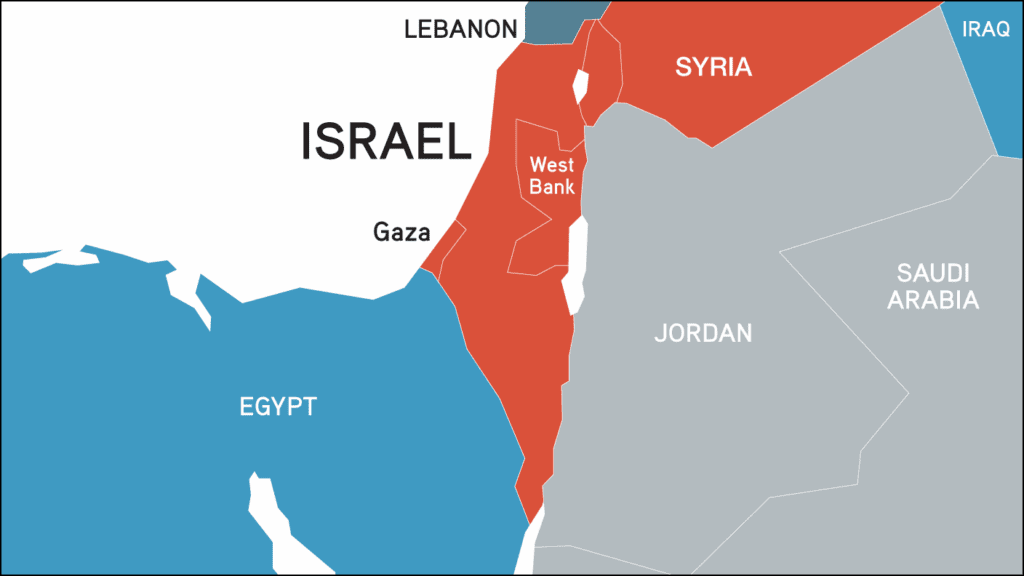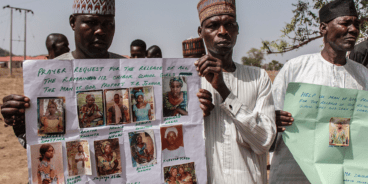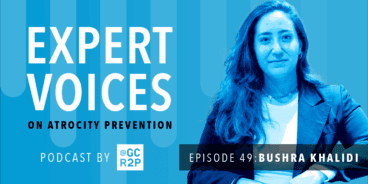Israel and the Occupied Palestinian Territory

Israeli forces have perpetrated atrocity crimes in Gaza and the Occupied West Bank, including war crimes, crimes against humanity, ethnic cleansing and genocide. Hamas and other Palestinian armed groups have also perpetrated atrocity crimes.
BACKGROUND:
For more than two years Israel has launched relentless bombardments from air, land and sea, as well as repeatedly imposed complete sieges on Gaza. Israel’s initial bombardment and siege followed a deadly assault by Hamas and other Palestinian armed groups into Israel on 7 October 2023. Since then, Israel has killed over 65,000 Palestinians, most of whom are women and children, and injured over 167,000. Thousands more are estimated to be missing or buried under rubble of destroyed buildings. Nearly 80 percent of infrastructure across the Gaza Strip has been damaged or destroyed.
On 10 October 2025 the first phase of a ceasefire agreement between Hamas and Israel – rooted in a so-called 20-point peace plan announced by United States (US) President Donald Trump – came into effect in Gaza. The agreement established preliminary conditions before proceeding to a second phase, including the suspension of all hostilities, an exchange of all remaining hostages (living and deceased) for nearly 2,000 Palestinian prisoners and detainees, the daily entry of some 600 trucks of humanitarian aid and the withdrawal of Israeli troops to a demarcated line, leaving approximately 58 percent of Gaza under Israeli control. The latest ceasefire comes months after a prior ceasefire collapsed on 18 March. Israel’s resumed military assault killed thousands of Palestinians, displaced over 1.1 million and restricted access to over 80 percent of Gaza.
On 2 March Israel also reimposed a total siege, closing border crossings and blocking goods and supplies. A limited flow of aid has been allowed into the enclave since 19 May under an alternative US-and Israeli-backed humanitarian distribution scheme, which the UN has rejected as a violation of humanitarian principles. Since the operationalization of the so-called “Gaza Humanitarian Foundation,” nearly 3,000 Palestinian aid seekers have been killed. On 22 August the Integrated Food Security Phase Classification officially classified famine in the Gaza governorate.
Numerous independent UN experts, including the Special Rapporteur on the situation of human rights in the Palestinian Territory occupied since 1967 and the Special Committee to Investigate Israeli Practices Affecting the Human Rights of the Palestinian People and Other Arabs of the Occupied Territories, have determined that Israel’s warfare in Gaza is consistent with the characteristics of genocide. The UN Independent International Commission of Inquiry (CoI) on the Occupied Palestinian Territory (OPT), including East Jerusalem, and Israel determined that Israel has committed at least four of the five acts prohibited under the Genocide Convention, including imposing measures to prevent births. In response to the case brought by South Africa against Israel for allegations of genocide against the Palestinian people, since January 2024 the International Court of Justice (ICJ) has issued three binding sets of provisional measures that list urgent measures the Israeli authorities must take to prevent genocide and allow necessary aid to enter Gaza. Israel has consistently defied these provisional measures orders and its obligations as an occupying power under International Humanitarian Law (IHL).
The Office of the UN High Commissioner for Human Rights (OHCHR) has reported a significant increase in extrajudicial executions, mass detentions and enforced disappearances of Palestinians in Gaza and the Occupied West Bank since October 2023 – with thousands held in detention in deplorable conditions without charge or trial. According to the CoI, Israel’s mistreatment of Palestinian detainees is an “intentional policy,” involving acts that amount to war crimes or crimes against humanity. Detainees have been deliberately humiliated – including through physical, psychological, sexual and reproductive violence – used as human shields and frequently denied adequate food and medical care.
During their assault on 7 October 2023, Hamas and other Palestinian armed groups attacked civilian areas in Israel and perpetrated flagrant violations of international law, including capturing and forcibly taking hundreds of civilians as hostages. At least 1,200 Israelis were killed and over 5,400 injured. The CoI found that members of Hamas and other Palestinian armed groups committed war crimes, including deliberately killing, injuring and mistreating civilians and taking hostages. The CoI identified patterns indicative of sexual violence, including sexual desecration of corpses and using women and women’s bodies as “victory trophies.”
On 21 November 2024 the International Criminal Court (ICC) issued arrest warrants for two Israeli government officials – including Prime Minister Benjamin Netanyahu – and a Hamas official. The ICC judges determined that there are reasonable grounds to believe that these senior Israeli leaders and Hamas official bear responsibility for war crimes and crimes against humanity.
Palestinian territory – encompassing the Gaza Strip and West Bank, including East Jerusalem – has been occupied by Israel since 1967. The UN Special Rapporteur has determined that Israel has imposed a system of racial oppression and discrimination that satisfies the prevailing evidentiary standard for the crime of apartheid, a crime against humanity. In July 2024 the ICJ issued an advisory opinion – endorsed overwhelmingly by a subsequent UN General Assembly resolution – detailing that Israel’s continued presence in the OPT is unlawful, asserting Israel must end its presence as rapidly as possible, immediately cease all new settlement activities and evacuate all settlers.
Since October 2023 existing patterns of violence in the Occupied West Bank have escalated, including settler attacks, resulting in hundreds of Palestinian fatalities and injuries. OHCHR reported that settlers are, at times, acting with the acquiescence and collaboration of Israeli forces and authorities. At least 35 Israelis, including IDF members, and 964 Palestinians have been killed. There has also been a sharp increase in disproportionate force by Israeli forces, including airstrikes, violent military tactics during search-and-arrest operations and incursions by armored personnel carriers and bulldozers sent to refugee camps. In January 2025 Israel launched a large-scale military operation in the northern Occupied West Bank, including the deployment of tanks for the first time in over two decades. The ongoing assault has killed over 70 Palestinians, leveled dozens of residential buildings, damaged critical infrastructure and forcibly displaced over 40,000 Palestinians, marking the largest wave of forced displacement in the Occupied West Bank since 1967.
RECENT DEVELOPMENTS:
Despite the ceasefire, Israel has continued to conduct attacks on Gaza and obstruct humanitarian aid delivery, killing over 200 Palestinians in the first month and allowing in only a fraction of the agreed upon aid trucks. Discussions on the ceasefire’s second phase remain ongoing, encompassing the withdrawal of Israeli forces from Gaza, Hamas’ disarmament, the creation of a transitional governing body and the deployment of a so-called international stabilization force. A US-led draft UN Security Council (UNSC) resolution proposing a transitional governance body in Gaza and the deployment of a so-called international stabilization force is currently under negotiation.
On 20 October the ICJ delivered a new Advisory Opinion on Israel’s obligations concerning the presence and activities of the UN and other international organizations operating in the OPT, reaffirming Israel’s duties as the occupying power to ensure the provision of essential services and facilitate humanitarian access.
In September several western states, including France, Belgium, Canada and the United Kingdom, recognized Palestinian statehood.
ANALYSIS:
While the ceasefire agreement provides urgently needed relief to Palestinians in Gaza, atrocities in the OPT will persist until there is a permanent ceasefire, the root causes of violence are addressed and a sustainable political solution is achieved. Current US attempts to establish a UNSC-backed international stabilization force raise serious legal and legitimacy concerns. These include the potential exercise of broad powers without adequate safeguards or an exit strategy, the sidelining of accountability and the absence of Palestinian consent, all of which undermine the Palestinian right to self-determination and sovereignty.
For over two years Israel has subjected Palestinians in Gaza to genocide. The rhetoric of Israeli authorities, coupled with the conduct of Israeli forces in Gaza have reflected, beyond military objectives, an accompanying intent to destroy a substantial part of the Palestinian population. Israel’s ongoing military assault on the Occupied West Bank – resembling its conduct in Gaza – has heightened the risk of further atrocity crimes against Palestinians.
The mass displacement of Palestinians in Gaza and the West Bank likely amounts to the war crime and crime against humanity of forcible transfer. While Israel has imposed an unlawful air, sea and land blockade of Gaza since 2007, its sieges on Gaza following October 2023 amount to intentional starvation of civilians as a method of warfare – a war crime – and may amount to a crime against humanity and act of genocide.
Hamas’ indiscriminate rocket attacks are also in violation of international law. Hamas’ security forces have also committed grave abuses against Palestinians in Gaza, including arbitrary arrests, summary executions and torture.
Under the Fourth Geneva Convention, an occupying power is prohibited from transferring parts of its civilian population into occupied territory, also known as “settler implantation.” Seizures and demolitions of Palestinian and Bedouin land and property leave communities at risk of forced evictions, arbitrary displacement and forcible transfer. Israel’s permanent occupation endangers the cultural existence of the Palestinian people and violates their right to self-determination.
The international community has largely struggled to speak out resolutely in defense of international law and the protection of civilians, amplifying the risk of further atrocities. Since October 2023 the UNSC has voted multiple times on draft resolutions, with many failing to pass due to insufficient votes or vetoes cast by permanent members, including the US and Russia. The US has a long history of using its veto to protect Israel.
RISK ASSESSMENT:
-
-
- Fragile ceasefire risking a return to large-scale bombardments, ground offensives and siege tactics.
- Enabling conditions for crimes of forced displacement and forcible transfer.
- Escalating violence, attacks and arbitrary arrests in the Occupied West Bank.
- Institutionalized systematic racial oppression and discrimination against Palestinians and the de facto and illegal annexation of Palestinian land.
- No effective accountability for cycles of deadly hostilities between Israel and Hamas and other Palestinian armed groups.
-
NECESSARY ACTION:
Hamas and Israel must respect the terms of the ceasefire agreement. A permanent ceasefire in Gaza must be established and equally applied in the Occupied West Bank.
All states, including those with influence in the region, must apply diplomatic and economic pressure on Israel to lift the aid blockade on Gaza, urge both parties to uphold the ceasefire agreement and ensure the presence of independent monitors to oversee its implementation. Regardless of the ceasefire, Israel and all third states remain bound by their obligations under the Genocide Convention and IHL. Israel must immediately halt its military assault on the Occupied West Bank, implement the ICJ’s provisional measures and its allies must ensure compliance.
Any proposed international stabilization force must respect Palestinian consent, as well as establish robust safeguards and accountability measures and a clear exit plan. UNSC members must uphold their duty of non-recognition for any UNSC-mandated proposal that entails serious breaches of international law, including territorial acquisition through force. The international community must support a Palestinian-led recovery and reconstruction of Gaza, ensuring that Israel neither obstructs nor benefits from it. States should join the Hague Group to reaffirm their collective role in supporting accountability and a political solution grounded in international law. All states must also defend the mandate and premises of the UN Relief and Works Agency for Palestine Refugees in the Near East and adequately fund its vital operations.
The root causes of violence and atrocities must be addressed. Israel must cease illegal settlement-related activity, apartheid policies, the occupation of Palestinian territory and collective punishment of Palestinians. All parties should unequivocally condemn anti-Palestinian, anti-Arab, anti-Semitic and Islamophobic hate speech. Leaders must refrain from spreading and engaging in dehumanizing rhetoric and actions.
States parties to the Genocide Convention should support proceedings before the ICJ and refrain from attempts to impede the Court’s independent work or discredit its findings. The ICC must be allowed to conduct its mandate independently and impartially and all states should cease any impediments, intimidation, retaliation or improper influences against the Court and its officials. Israel should ratify the Rome Statute and cooperate with all UN-mandated investigative mechanisms.
For more on the Global Centre’s advocacy work on the situation in the IOPT, see our IOPT country advocacy page.
Atrocity Alert No. 460: Nigeria, Israel and the Occupied Palestinian Territory and Myanmar (Burma)
Related Content

Atrocity Alert No. 461: Israel and the Occupied Palestinian Territory, Global Landmine Report and Ethiopia

Atrocity Alert No. 460: Nigeria, Israel and the Occupied Palestinian Territory and Myanmar (Burma)
